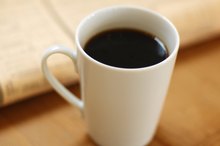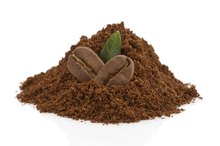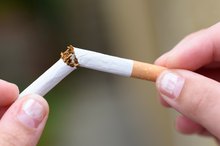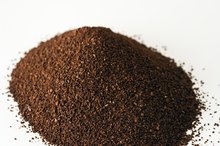Quitting Caffeine & an Increased Pulse Rate
Caffeine is the byproduct of certain plants, naturally found in tea and coffee. It is added artificially to commercial drinks, chocolate, cocoa and some over-the-counter and prescription drugs. Caffeine is a stimulant to the central nervous system, and for some people, even one cup of coffee a day may be too stimulating, causing nervousness, jitters and insomnia. Quitting caffeine may temporarily create a rebound effect for those who are sensitive, causing an increased pulse rate, fatigue and lassitude.
Affects of Caffeine on the Body
Because:
- an increase in alertness
- insomnia
- jitters
- elevated heart rate
- muscle cramps
- elevated blood sugar
- dizziness
- breathing difficulties
- excess thirst
- anxiety
- panic attacks
- irritability
- blurry vision
- increased urination
- vasospasms
- or contractions in the small blood vessels
Side Effects
How Do Caffeine Tablets Affect Your Body?
Learn More
Consuming 1,000 milligrams, or 10 six-ounce cups of caffeinated coffee or other caffeinated beverages a day may produce significant side effects, according to the University of Michigan Health Service 1.
Caffeine Rebound
Habitual use of caffeine may provide a short-term pick-me-up; however, as its effects wear off after you've stopped drinking it, there's often a rebound effect, which may increase symptoms such as an elevation in pulse rate, blood pressure and nervousness.
Giving up Caffeine
Why Does Caffeine Give Me a Headache?
Learn More
Quitting caffeine may feel like a huge challenge at first, especially if your body is in rebound and you're reacting. It may be helpful to reduce your caffeine consumption slowly, rather than going "cold turkey" and stopping completely, especially if you consume large amounts of coffee, tea or sodas containing caffeine. By reducing your intake in stages, you may help lessen the rebound of an increase in your blood pressure, heart rate, anxiety levels and other unpleasant side effects. Switch to a drink with less caffeine, such as green tea or yerba mate tea. Limit the number of cups you drink each day, reducing that number over a period of a few days. Allow yourself about a month or so to slowly quit caffeine. Over time, your body should return to its normal rhythm and any rebound symptoms should fade. Monitor your body's emotional and physical signs and have your vital signs taken to make sure that they return to normal.
- Quitting caffeine may feel like a huge challenge at first, especially if your body is in rebound and you're reacting.
- It may be helpful to reduce your caffeine consumption slowly, rather than going "cold turkey" and stopping completely, especially if you consume large amounts of coffee, tea or sodas containing caffeine.
Related Articles
References
- University of Michigan Health Service: Caffeine
- Bodytechinician.com: Caffeine: Cup of Pain
- StevePavlina.com: How to Give Up Coffee
- Zaragoza J, Tinsley G, Urbina S, et al. Effects of acute caffeine, theanine and tyrosine supplementation on mental and physical performance in athletes. J Int Soc Sports Nutr. 2019;16(1):56. doi:10.1186/s12970-019-0326-3
- Higashi Y. Coffee and endothelial function: A coffee paradox? Nutrients. 2019;11(9). doi: 10.3390/nu11092104
- Temple JL, Bernard C, Lipshultz SE, Czachor JD, Westphal JA, Mestre MA. The safety of ingested caffeine: A comprehensive review. Front Psychiatry. 2017;8:80. doi:10.3389/fpsyt.2017.00080
- National Institute on Drug Abuse for Teens. Is caffeine really addictive? Updated 2020.
- The American College of Obstetrics and Gynecology. Moderate caffeine consumption during pregnancy. Updated 2016.
- Kids Health from Nemours. Caffeine. Updated 2017.
- Beydoun MA et. al. Caffeine and alcohol intakes and overall nutrient adequacy are associated with longitudinal cognitive performance among U.S. adults. The Journal of Nutrition. 2014;144(6);890-901. doi:10.3945/jn.113.189027
Writer Bio
Jean Bardot is a freelance writer and natural health practitioner. She started writing in 1994 and has contributed articles to publications such as "Similimum" and the "IFH Journal." She has a Bachelor of Science in public health from the University of North Carolina and a Master of Science in holistic nutrition from Clayton College of Natural Health.









